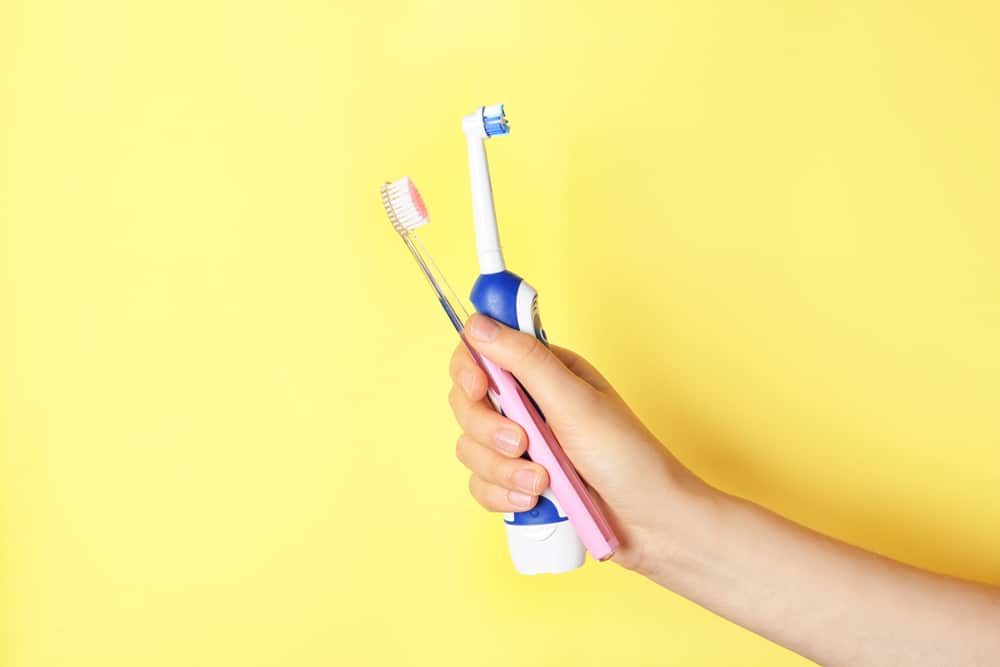When it comes to maintaining your oral health, your toothbrush is your frontline defense. Brushing your teeth is a simple yet crucial step in your daily routine, essential for keeping your mouth healthy. Without regular brushing, other oral hygiene practices like flossing and rinsing won’t be as effective.
By brushing your teeth, you’re removing sugars, food particles, and bacteria that can lead to cavities, acid erosion, enamel wear, and infections. It also helps prevent the buildup of sticky plaque, which can harden into tartar and contribute to gum disease if not addressed.
Choosing the right toothbrush can be overwhelming with the abundance of options available, each boasting different features and benefits. However, the key is finding one that you’ll actually use consistently. For most people, this means opting for a toothbrush with soft bristles to avoid damaging the enamel and a smaller brush head to reach tight spaces.
But when it comes to deciding between an electric or manual toothbrush, the choice ultimately depends on your personal preference and needs. Let’s explore the pros and cons of each.

Electric toothbrushes, also known as “power toothbrushes,” boast a bristled head powered by a motor within the handle, featuring oscillating or vibrating movements. While many dentists advocate for electric toothbrushes, misusing them can potentially harm the gums. Therefore, understanding the correct usage is paramount to ensure optimal oral health.
More precise cleaning. Electric toothbrushes offer superior and more precise cleaning compared to manual brushing. The automatic movement of the brush head is designed to effectively navigate the contours and shapes of the teeth, resulting in a more thorough cleaning experience.
Perfect for certain people. Electric toothbrushes can be beneficial for children and individuals who struggle with proper brushing techniques. Some models are equipped with features such as timed reminders or signals to encourage extended brushing sessions. Combined with the multi-directional movement of bristles, this promotes comprehensive cleaning.
Too much force. Users prone to aggressive brushing may inadvertently apply excessive force when using electric toothbrushes. This can potentially lead to gum recession, as the toothbrush already delivers a significant amount of pressure independently.
Cost. Electric toothbrushes can be costly, both initially and in the long term. Expenses include battery replacements or the cost of electric charging, along with the need for periodic head replacements.
Electric toothbrushes are available in three primary types: sonic, oscillating, and rotary.
While each type functions effectively, the choice ultimately depends on personal preference. Generally, rotary brushes feature smaller heads.
Correct brushing technique is important to prevent damage to the teeth and gums when using an electric toothbrush.
Manual toothbrushes, the quintessential dental tools, lack electronic components, relying solely on brushing technique for efficacy.
Cost-effective. Manual toothbrushes are affordable options for dental care.
User-friendly. They are straightforward and easy to use.
Versatile. Manual toothbrushes offer a wide array of options, including various brush head shapes, orientations, and sizes, catering to diverse preferences.
No charging required. Unlike electric counterparts, manual toothbrushes do not require charging.
Portable. They are easily transportable, ideal for travel or on-the-go use.
Potential limited cleaning results. Manual toothbrushes may not achieve the same level of cleanliness as electric brushes due to improper brushing techniques, often involving horizontal back-and-forth movements.
Reduced plaque removal. They lack the vibration advantages of electric brushes, potentially resulting in less effective plaque and debris removal.
Manual toothbrushes primarily differ in bristle orientation. While studies suggest zig-zag bristles are more effective, individual dentition variations mean what works for one person may not suit another.
To achieve results comparable to electric toothbrushes, proper manual brushing technique is essential:
The best toothbrush for you is ultimately the one that you’ll consistently use. Studies suggest that, on average, electric toothbrushes tend to yield better results compared to manual ones. However, if you find electric toothbrushes noisy or uncomfortable, opting for a manual toothbrush is a wise choice.
Individuals with no particular preference can still benefit from electric toothbrushes, but remember to maintain proper brushing technique to avoid potential damage to the teeth. Consulting with your dentist regarding the most suitable brush head for your dentition is advisable, especially if you have misaligned teeth or specific dental concerns.
Investing in a toothbrush that aligns with your brushing habits and dental needs can make dental checkups smoother. Proper oral care reduces plaque buildup, leading to less time spent at the dentist’s office, decreased gum bleeding, and a lower likelihood of developing cavities.
Regardless of the type of toothbrush chosen, proper maintenance is essential for optimal oral hygiene.
Cleaning. Rinse your toothbrush thoroughly with warm water after each use to remove bacteria and toothpaste residues. Allow it to air dry upright to prevent bacterial growth.
Electric toothbrush care. Wipe down the machine part of an electric toothbrush with a cleaning cloth if necessary to maintain cleanliness.
Replacement. Replace your toothbrush (or brush head for electric options) every three months or sooner if the bristles are frayed, if your teeth don’t feel clean after brushing, or if you’ve been sick recently.
The effectiveness of a toothbrush, whether manual or electric, ultimately depends on consistent usage and proper brushing technique. Choose a toothbrush that suits your preferences and needs, and prioritize regular replacement and maintenance to ensure optimal oral health.
At Dental Depot of Kansas City, we believe in making dental care easy, accessible, and affordable, which is why we take a commonsense approach that puts you and your family first. We offer comprehensive oral care services, including dental cleanings and checkups, that fit within your schedule and your budget, and our team of experienced and friendly dental professionals is always ready to help you find the right products for your needs.
For convenient, caring, and complete dental health services, schedule an appointment at Dental Depot in Kansas City and find out what a difference quality care can make!